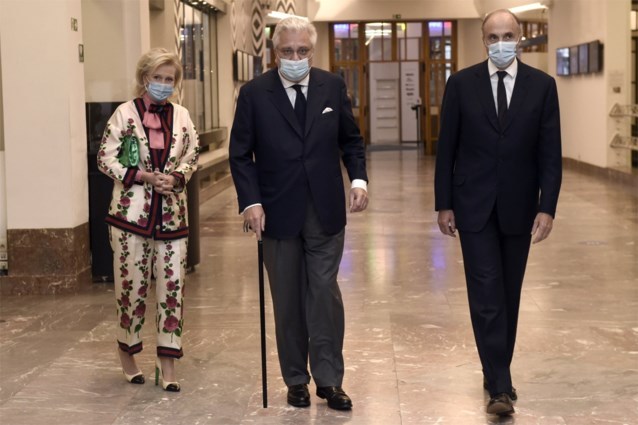The face mask that is now an unavoidable accessory in every enclosed public place will stay with us at least until the winter, and possibly until a vaccine is available, according to the latest report from the GEES committee of experts.
The Group of Experts for an Exit Strategy has been counselling the widespread and obligatory wearing of face masks for some time, before politicians finally agreed under pressure from the High Council for public health.
Now masks have to be worn on pain of a fine in all enclosed public spaces, including shops and indoor shopping centres, cinemas, theatres, banks and more. Exceptions include bars and restaurants.
Masks have been obligatory on public transport and at stops and stations since May.
Now, according to De Standaard, the GEES has devoted five pages of its latest report to the government to the question of masks. The report presents a series of arguments, the paper says, that make it clear the experts will not be supporting a relaxation of the need to wear masks any time soon.
Part of that argumentation concerns the question of aerosol transmission, whereby the virus can be transmitted via tiny droplets of saliva that are produced when speaking and hang in the air for longer than the drops produced by a cough or a sneeze.
A face mask worn properly can trap such aerosol droplets and prevent them infecting someone else. At the same time they represent no danger to the mask wearer, even if they are infected – one cannot infect oneself.
The report cites a study from Germany which found that making mask wearing compulsory led to a fall of 40% in the daily number of infections – a figure which is now increasing again in Belgium.
In addition, masks have a psychological effect: the wearing of a mask increases watchfulness or vigilance. And crucially, they reduce the spread of the virus if people do come too close.
“I see very few scenarios in which we will soon say, ‘Let’s do away with the obligation,’ virologist Marc Van Ranst, a member of the GEES, told the paper.
“We will certainly continue to wear masks in the winter, and possibly even until there is a vaccine.”
A relaxation of the rule might have been possible if the contamination rates went tending towards zero, he said. But that is not the case.
The latest figures for the week from 7 to 13 July show an average daily number of new infections of 114.7, the tenth successive daily increase.
Alan Hope
The Brussels Times

